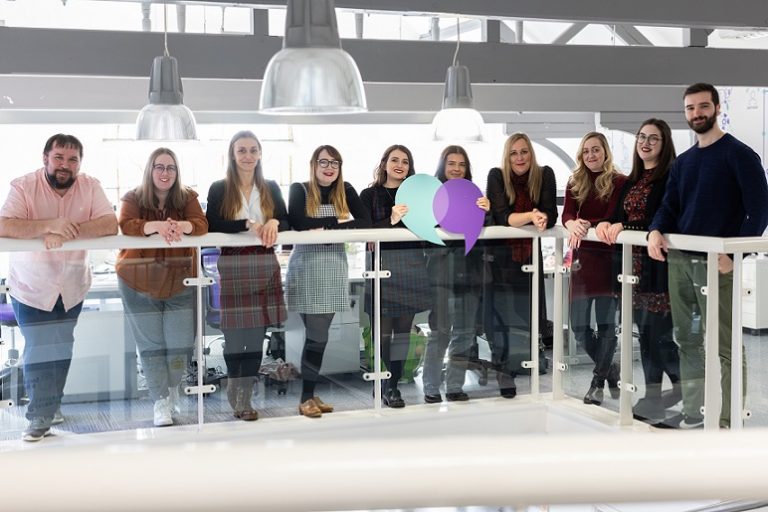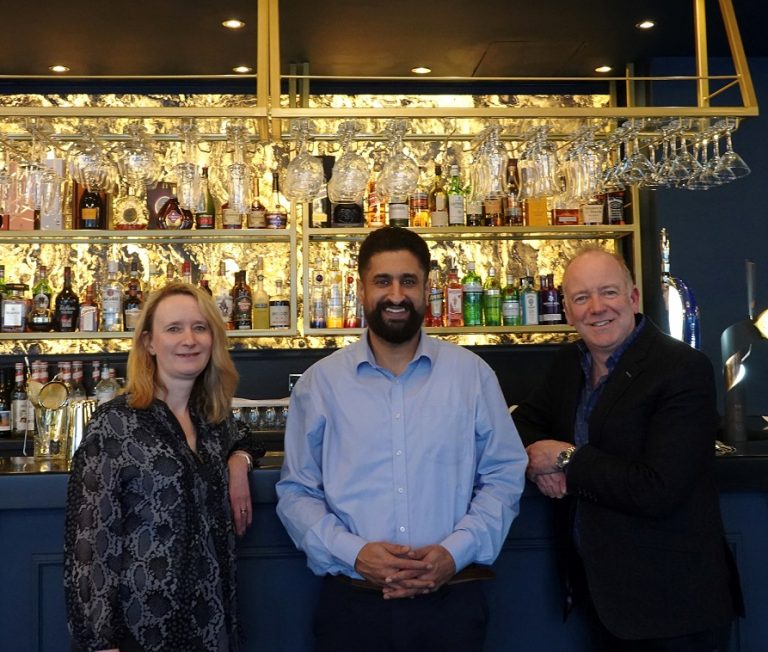Social Change UK has been certified by B Lab, the not-for-profit behind the B Corp movement, as having met rigorous social and environmental standards which represent its commitment to goals outside of shareholder profit.
The B Corp certification addresses the entirety of a business’s operations and covers five key impact areas of Governance, Workers, Community, Environment and Customers. The certification process is rigorous, with applicants required to reach a benchmark score of over 80 while providing evidence of socially and environmentally responsible practices relating to energy supplies, waste and water use, worker compensation, diversity, and corporate transparency.
Social Change UK scored 109. Most businesses score between 40 and 100, with 80 points required to become certified. A score of over 100 is considered outstanding. The Lincoln-based agency is now part of a community of 4,600 businesses globally that have certified as B Corps.
The B Corp community in the UK, representing a broad cross section of industries and sizes, comprises over 600 companies and include well-known brands such as The Guardian, innocent, Patagonia, The Body Shop, and organic food pioneers Abel & Cole. Social Change UK is only the SECOND business in Lincolnshire to certify as a B Corp and one of only 14 businesses in the East Midlands certified.
Chris Turner, executive director of B Lab UK, said: “We are delighted to welcome Social Change UK to the B Corp community. This is a movement of companies who are committed to changing how business operates and believe business really can be a force for good. We know that Social Change UK are going to be a fantastic addition to the community and will continue driving the conversation forward.”
He continued: “We are pleased to have B Corps of all shapes and sizes as part of our community – from start-ups to multinationals and across many different industries. Welcoming Social Change UK is an exciting moment because they have an opportunity to lead the way within the marketing and research industry.
“We and the rest of the B Corp community are really pleased to support Social Change UK in paving the way for a new way of doing things. Their commitment to doing business differently will be an inspiration to others and will really help spread the idea that we can redefine success in business to be as much about people and the planet as it is about profit.”
Kelly Evans, Chief Executive of Social Change UK, said: “We are thrilled to certify as a B Corp and join a community of businesses who we greatly admire and respect for pursuing purpose and putting people and the planet ahead of profit. The values and ethos of B Corp have always been at the core of our business since it was founded back in 2010. In our heart we have always been a B Corp – but I wanted to officially certify to prove that we are true to our word and we will always pursue purpose before profit.”
Social Change UK is behind several successful social purpose driven campaigns in recent years. The agency scooped a prestigious Drum Social Purpose Award for their “Jiggle, Wiggle” sexual health campaign beating Dove, WWF, Mastercard, and the British Red Cross to the accolade back in 2019. Only a year later they were shortlisted for another Drum Social Purpose award for a breastfeeding campaign. The company has gone from strength to strength over the last three years becoming a leading behaviour change agency in the UK.
 Divisional Medical Director of Medicine, Dr Anwer Qureshi, has been instrumental in designing not only the new units and facilities themselves but, with his team, has also defined the clinical pathways which determined how the facilities are designed to provide you and your loved ones with best possible care.
He said: “We have already made significant progress on constructing the new Emergency Departments, which will be used to provide care to you if you are seriously injured or ill. These facilities will also be hosting our Urgent care services- where you will be managed by our skilled practitioners for an urgent but non-life threatening injury or illness”.
“Having this final phase of funding approved will allow us to complement these units with our Acute Assessment units and short stay wards, all on one floor”.
“These AAUs will be staffed by expert clinicians trained in a wide variety of skills. This will allow us to see and diagnose you more quickly and get you on the right course of treatment, without necessarily having to admit you to a ward in the first instance.
“As a result, it’s less likely that clinically stable patients will need to be admitted and, if you are, you will probably spend less time in hospital.”
“It is a joint effort for which I am grateful to the ED, Acute Medicine, Surgical specialties and Family Services teams at NLaG. Together, we have already updated and implemented processes and pathways based on best practice, which will swiftly move us into the use of the new facilities when available, setting an example in the region”.
Divisional Medical Director of Medicine, Dr Anwer Qureshi, has been instrumental in designing not only the new units and facilities themselves but, with his team, has also defined the clinical pathways which determined how the facilities are designed to provide you and your loved ones with best possible care.
He said: “We have already made significant progress on constructing the new Emergency Departments, which will be used to provide care to you if you are seriously injured or ill. These facilities will also be hosting our Urgent care services- where you will be managed by our skilled practitioners for an urgent but non-life threatening injury or illness”.
“Having this final phase of funding approved will allow us to complement these units with our Acute Assessment units and short stay wards, all on one floor”.
“These AAUs will be staffed by expert clinicians trained in a wide variety of skills. This will allow us to see and diagnose you more quickly and get you on the right course of treatment, without necessarily having to admit you to a ward in the first instance.
“As a result, it’s less likely that clinically stable patients will need to be admitted and, if you are, you will probably spend less time in hospital.”
“It is a joint effort for which I am grateful to the ED, Acute Medicine, Surgical specialties and Family Services teams at NLaG. Together, we have already updated and implemented processes and pathways based on best practice, which will swiftly move us into the use of the new facilities when available, setting an example in the region”.












